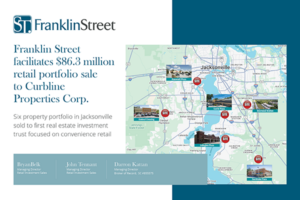It’s become a hip place to dine and shop for food, but redevelopment plans could change its makeup and character.
A new wave of developers and politicians see Buford Highway as prime for redevelopment, especially in the southern portion of the seven-lane state road that boasts one of the country’s most diverse international corridors.
Just as city leaders in Brookhaven plot the course of future development along their stretch of Buford Highway, new projects such as the transformation of the former General Motors plant in Doraville are kicking off that promise to be huge catalysts for Buford Highway.
It could signal a period of significant investment for Buford Highway, especially inside Interstate 285, that could evolve the existing inventory of suburban shopping centers, aging apartments and auto shops into walkable, urban villages with mixed uses and senses of place.
But it’s a careful balance because as property values and rents rise along Buford Highway with new development, it could outprice low-income residents and possibly reduce the diversity of ethnic small businesses.
The population along Buford Highway today, from North Druid Hills to Jimmy Carter Boulevard, is about 50 percent Asian. It posts some of metro Atlanta’s highest poverty rates. The median household income in 2013 for that stretch is around $50,000.
“As that complexity changes, those people are going to push out past Interstate 285,” said Emil Gullia, senior director with Franklin Street Real Estate.
“How imminent and close is that? If all the forces align – mega projects, new leadership, political agendas – it could advance quicker in some areas.”
Those pressures come into play just as Atlanta foodies tout Buford Highway as one of the city’s best culinary assets, a blend of cultures, among them Mexican, Chinese, Vietnamese, Korean, Peruvian, Caribbean, Malaysian and Indian.
“More people are open to it,” said Harold Shinn, owner of the Buford Highway Farmers Market. “Right now, it has a really good dynamic. You see more businesses trying to open.”
The two-year-old city of Brookhaven is eager to mold its portion of Buford Highway, a 3-mile stretch from the city of Atlanta limits to Clairmont Road. City officials view the corridor’s close-in location to downtown and Buckhead, two major highways and MARTA as attractive to developers.
“We see Buford Highway as an area that’s ripe for positive redevelopment to help our city be a strong, diverse city prepared for the 21st century,” Brookhaven Mayor J. Max Davis said.
In August, the Brookhaven City Council approved an improvement plan and economic development strategy for Buford Highway that offers a variety of public and private projects to spur investment. Several prime sties for new investment are identified such as the potential for a 200-room hotel (under an upscale brand such as Hilton, Sheraton or Wyndham) that would feature conference facilities geared toward the international community to be built at Buford Highway and North Druid Hills Road.
Another suggestion is to talk to Brixmore Property Group Inc., owner of Buford Highway’s largest shopping center, Northeast Plaza, about adding some 700 apartments to the more than 400,000-square-foot center.
Brookhaven leaders say their efforts are not aimed at displacing existing people and businesses, but will add diversity and density to the mix of development.
“Opportunity really knows no nationality,” said Davis of Brookhaven. “Improving Buford Highway doesn’t mean in any way denying opportunity to anyone.”
Some real estate observers don’t see Buford Highway evolving in a meaningful way soon. That’s because the multi-family boom is well underway in Atlanta and upscale apartment developers are targeting affluent markets including Buckhead and Midtown, not automobile-oriented corridors like Buford Highway.
Jimmy Cushman, property manager with Halpern Enterprises, a company that owns and manages several shopping centers along Buford Highway including Pinetree Plaza, expects activity to pick up in the next six to 18 months in Doraville.
“The city has become more business-friendly,” said Cushman, the son of Jim Cushman, who developed the Southeast’s first mixed-use project, Colony Square, in Midtown in the late 1960s. Over the last several years, the city has revamped its zoning ordinances and permit processes, he said.
Doraville also recently approved architectural design standards in the city that aim to spruce up the look of commercial areas including Buford Highway.
“I think we can really make a significant impact on the look and feel of Buford Highway,” said Doraville City Manager Shawn Gillen. “It’s the main thoroughfare through the city, so it’s important to us that it has a welcoming feel.”
Now, it awaits the rebirth of the GM plant. A joint venture that includes The Integral Group acquired the 165-acre site in September and plans a massive transit-oriented development at the former plant, which closed in September 2008.
Said Gillen, “the impact of the GM site can’t be overstated… It’s going to be such a huge change that there’s going to be spillover into other areas.”
An urban redevelopment plan approved by Doraville in 2012 calls the GM redevelopment “a once-in-a-lifetime opportunity to transform the area, repair the City’s fragmented state, spur regional job growth and create a sense of place or focal point for the community.”
When GM opened the Doraville assembly plant in 1947, it became the largest employer in northern DeKalb.
In the 1950s and 1960s, Doraville and Chamblee were thriving places and young professionals lived in the new apartments built along Buford Highway. But in the 1970s, the white population started leaving the corridor for more affluent housing int he suburbs just as the manufacturing industry declined. GM cut jobs in Chamblee and Doraville, slicing its population and creating vacant storefronts along Buford Highway.
In the 1980s, amid an industry boom in the Sunbelt, waves of immigrants from Mexico and southeast Asia moved to the corridor. They found attractive Buford Highway’s low-income housing, access to transportation and availability of jobs.
“Timing of the migration movement came when the global and regional economy in general was undergoing a restructuring,” geography professor Susan M. Walcott wrote in a 2002 report (while she worked at Georgia State University) on Buford Highway. “Transition along the highway was piecemeal and without a master plan, a truly opportunistic evolution.”
The earliest international restaurants opened in the early 1970s, including the first Mexican restaurants such as El Toro.
It soon snowballed as international communities sprouted along Buford Highway, then hit critical mass in the 1990s, said Shinn of Buford Highway Farmers Market.
“It had the right conditions,” said Shinn. “I think it had the infrastructure that was open to change. It was affordable.”
His parents found opportunity along Buford Highway, opening a tiny 500-square-foot Korean market in the former Broadview Plaza in 1974. That business evolved into what’s now a roughly 100,000-square-foot international food mega-store that offers a wide selection of produce (including eight varieties of eggplant), proteins and packaged foods that span countless cultures from Africa to Eastern European.
In 2013, Chef Richard Blais of Atlanta’s The Spence and Flip Burger Boutique took the Travel Channel’s Anthony Bourdain to Buford Highway Farmers Market.
Other television shows including “Atlanta East,” a weekly program that highlights the best local restaurants, have focused on the plethora of dining options along Buford Highway.
“It’s definitely becoming more hip,” said Steak Shapiro, host and founder of “Atlanta Eats.” “Ten years ago, very few people talked about Buford Highway. Now, it’s the cool thing to do. It’s becoming more approachable and more people are navigating it.”
Some of Atlanta’s best chefs now source ingredients from Buford Highway. “I think chefs are definitely going there to shop,” said Chef Ford Fry, who buys break for The Optimist’s po’boy sandwiches – a Vietnamese banh mi bread – from Lee’s Bakery on Buford Highway.
Longtime Atlanta restaurant broker Harold Shumacher said the international retailers along Buford Highway have given Atlanta a global authenticity.
“Frankly, for many people, this will be as close as you get to Malaysia or Vietnam.”



